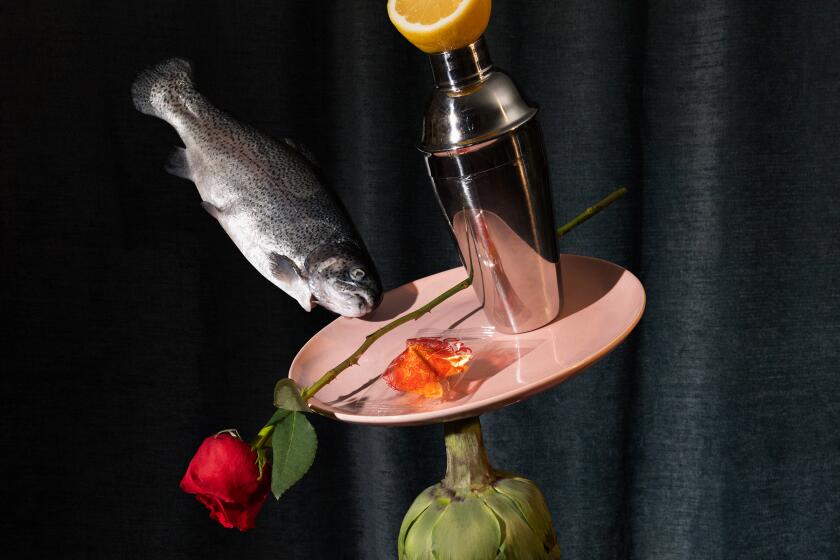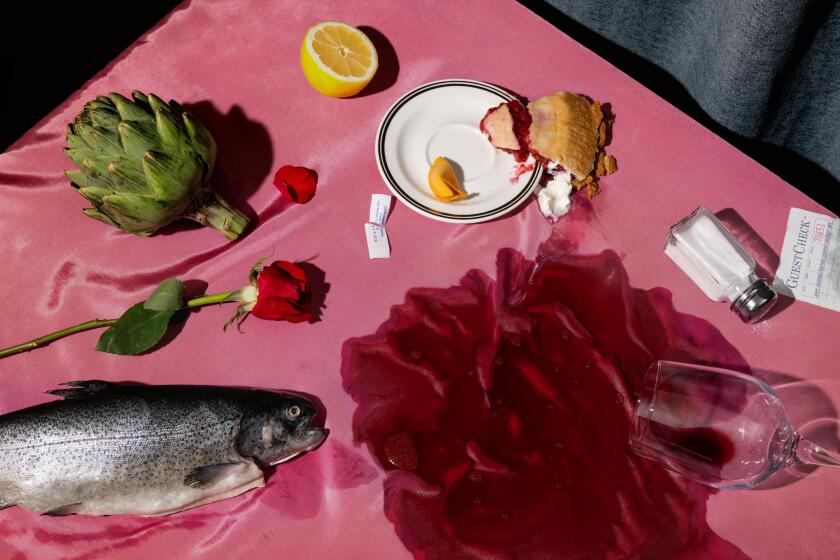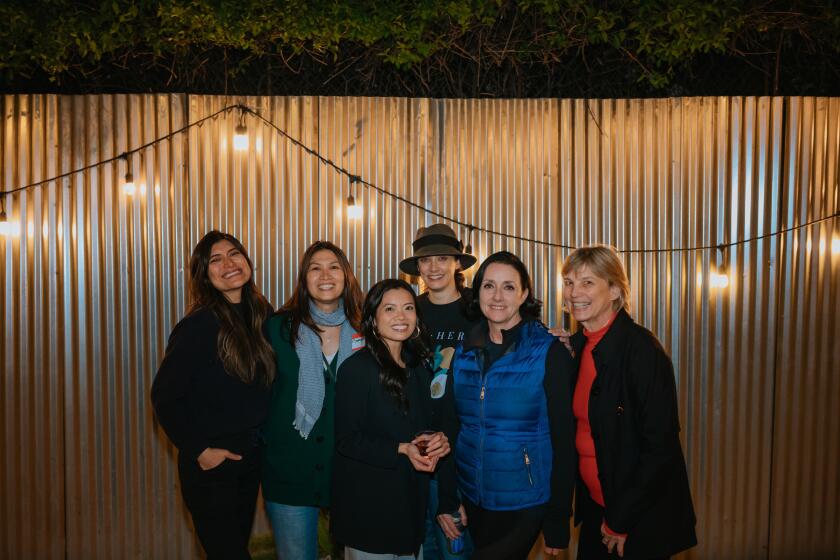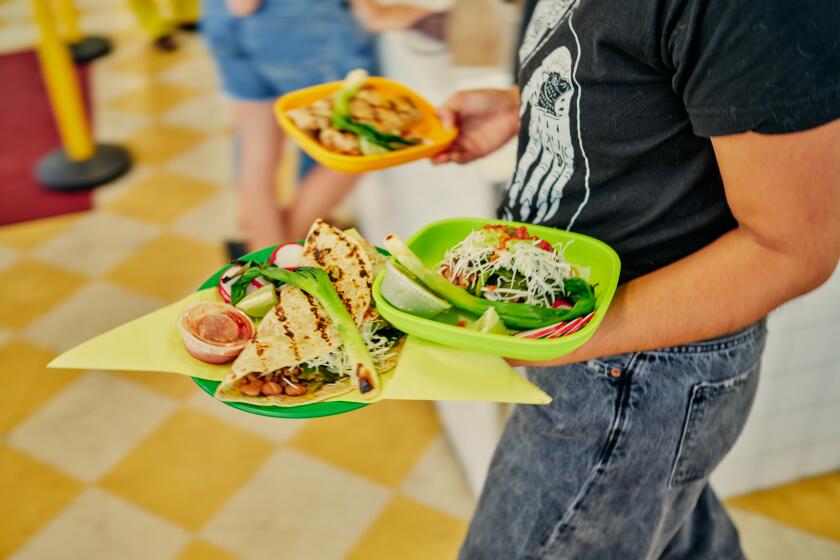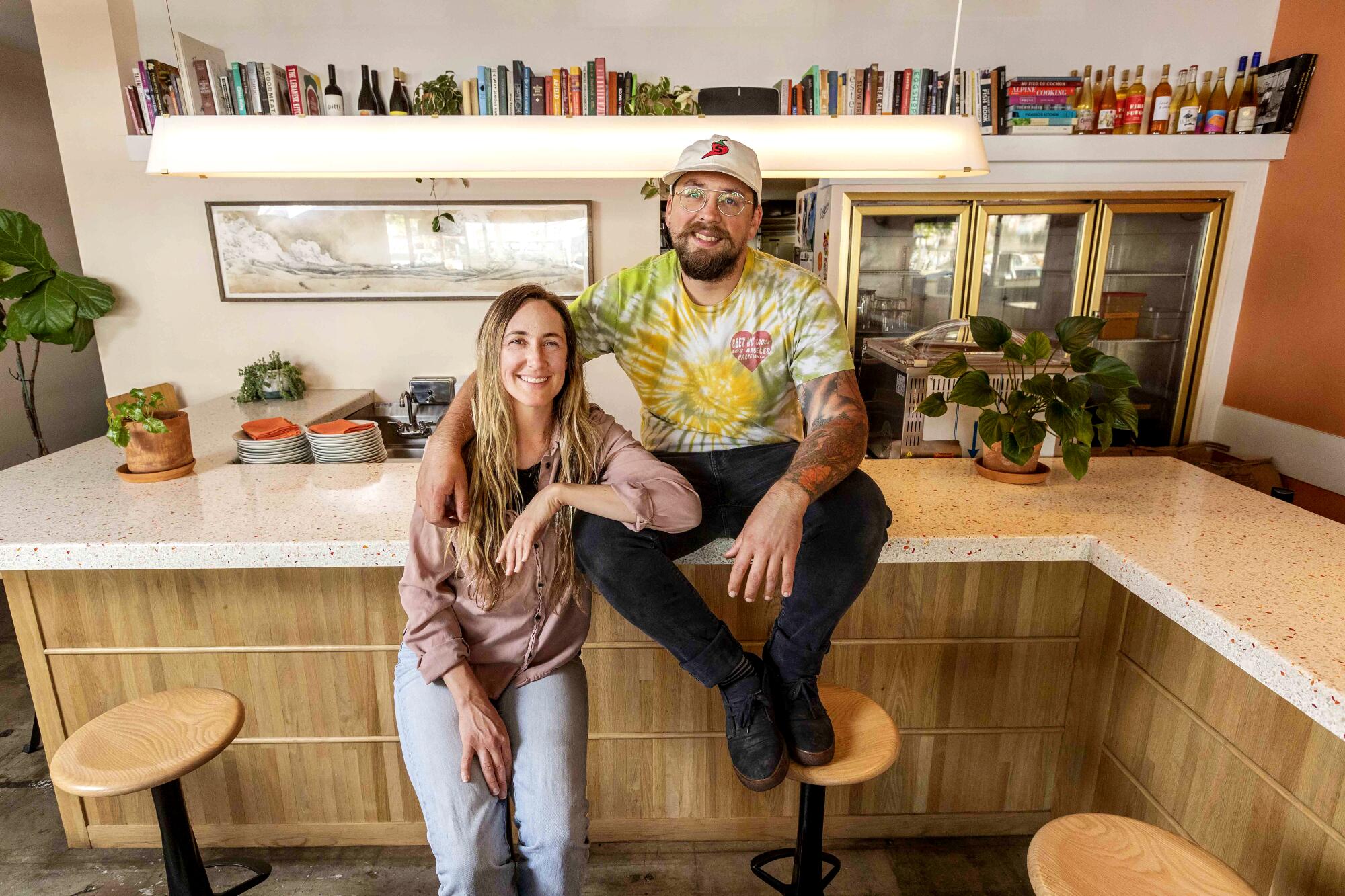
Making the decision to quit a restaurant that one has poured passion, sweat and money into can be daunting.
But the tumult in the restaurant industry and its fragile recovery have forced many restaurant owners and chefs to do just that.
Why the industry is facing a uniquely tumultuous year, and what it means for restaurateurs, chefs and diners.
After years of pushing to keep their kitchens afloat through the dark days of the COVID-19 pandemic and navigating the changes brought on by legislation, social movements and inflation, a growing number of restaurant owners and chefs are reimagining their lives.
Many closed up shop simply because their restaurants were no longer financially viable. Others burned out and yearned for some kind of work-life balance that is nearly impossible to achieve running your own restaurant. Some were done sacrificing family time and wanted to spend more time with their young children.
But no matter their reasons for leaving their businesses, one common denominator stood out among most of the chefs and restaurateurs we talked with: They say they’re much happier.
The industry is facing a crisis as new legislation, inflation, higher wages and pandemic fallout have chefs and owners worried for the future of mom-and-pop restaurants.
Andrea Borgen Abdallah
Former owner of Barcito in downtown Los Angeles
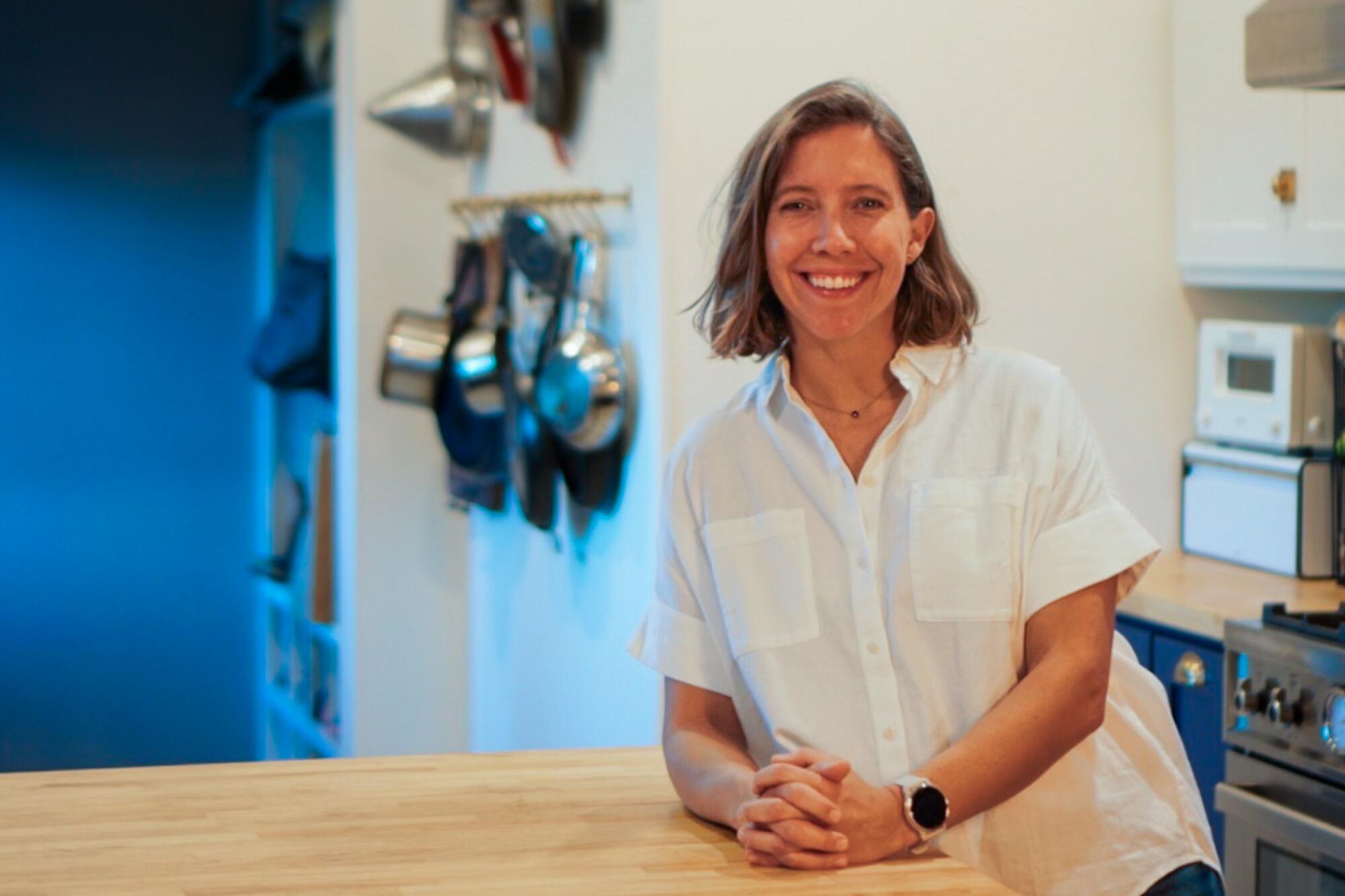
In spring 2021, after months struggling to keep her Argentine-inspired restaurant Barcito open during the COVID-19 pandemic, Andrea Borgen Abdallah finally felt able to reopen for indoor dining.
But she wasn’t excited about it. After years of running on adrenaline, she was running out of energy.
“I don’t love this restaurant anymore,” she thought to herself.
After a nearly six-year run, Abdallah closed Barcito in June 2021.
She was feeling burned out even before the pandemic, which forced her to reevaluate her life.
“I knew I didn’t want to go back to how things were before,” says Abdallah, 35, who until the restaurant shutdowns of 2020 didn’t have time to have dinner with her husband on a regular basis. “Dinner is an easy example, but it’s so much more — it’s nearly impossible to draw any distinctions between your work and your life.”
She’s now the director of community engagement for the Independent Restaurant Coalition, where she’s focused on ensuring that the group’s federal policy agenda reflects restaurant owners’ needs.
“I want work-life balance to be achievable,” she says. “I want a career in restaurants to feel sustainable for everyone.”
For that to happen, she feels that the restaurant industry itself must change.
“I realized I couldn’t fix [the industry] from the inside,” she says. “So now I’m focusing on the systemic issues that get in the way of that future.”
- Cindy Carcamo
Nonprofit Regarding Her provides educational and financial programming to help female chefs, leaders and entrepreneurs in a restaurant industry that has never been easy for women and is itself struggling.
Spencer and Sabrina Bezaire
Former owners of Eszett in Silver Lake
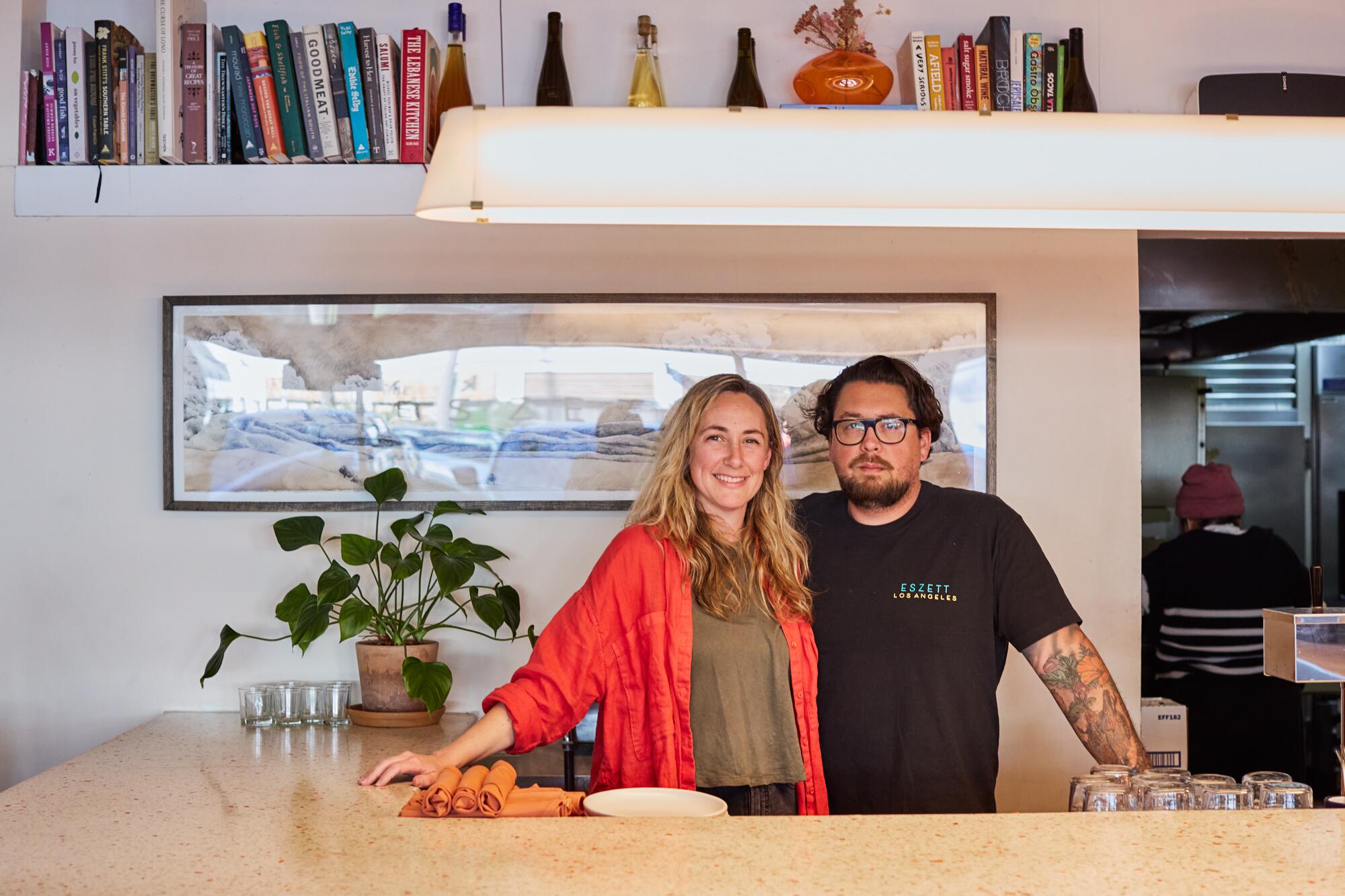
Spencer and Sabrina Bezaire opened the Silver Lake restaurant Eszett in December 2019, just a few months before the pandemic’s first closures.
They’d envisioned a neighborhood wine bar with a super seasonal menu, but to survive during COVID they pivoted to sandwiches and other easy takeout items.
Spencer hoped to get back to his more chef-driven vision for Eszett, but customers were used to the fast-casual menu. At the same time, wages increased after the pandemic, adding to their financial difficulties. The final blow came when the restaurant’s landlord told the couple they could no longer use a portion of the parking lot for outdoor dining.
“It’s just hard to justify being at work for 12 to 14 hours a day,” he says, “and also not make any money.”
The Bezaires closed Eszett in January 2023. They sold everything they owned, including their house in Los Angeles, and moved to Orcas Island in Washington state, 30 minutes away from the nearest town.
“The goal was to work for restaurants and take a seat back,” he says. “Not manage people.”
But then they got a chance to open up a small restaurant of their own, Lone Pine Larder. He said he couldn’t pass up the chance. The couple just finished remodeling the building and they’re close to opening up as a lunch deli with pantry items.
They’re keeping things simple with only one or two additional employees and hours limited to lunch four days a week, affording the couple some time away to enjoy the outdoors on the island.
“I don’t know if it’s fate,” Spencer says, “or just really dumb.”
- Cindy Carcamo
Stretch your dollar further with affordable and delicious meals for under $15, including Sonora-style burritos, burgers, Vietnamese comfort food, Salvadoran cuisine and more.
Shawn Pham
Former chef-owner of Simbal in Little Tokyo and former chef and co-owner of Fiona in Fairfax
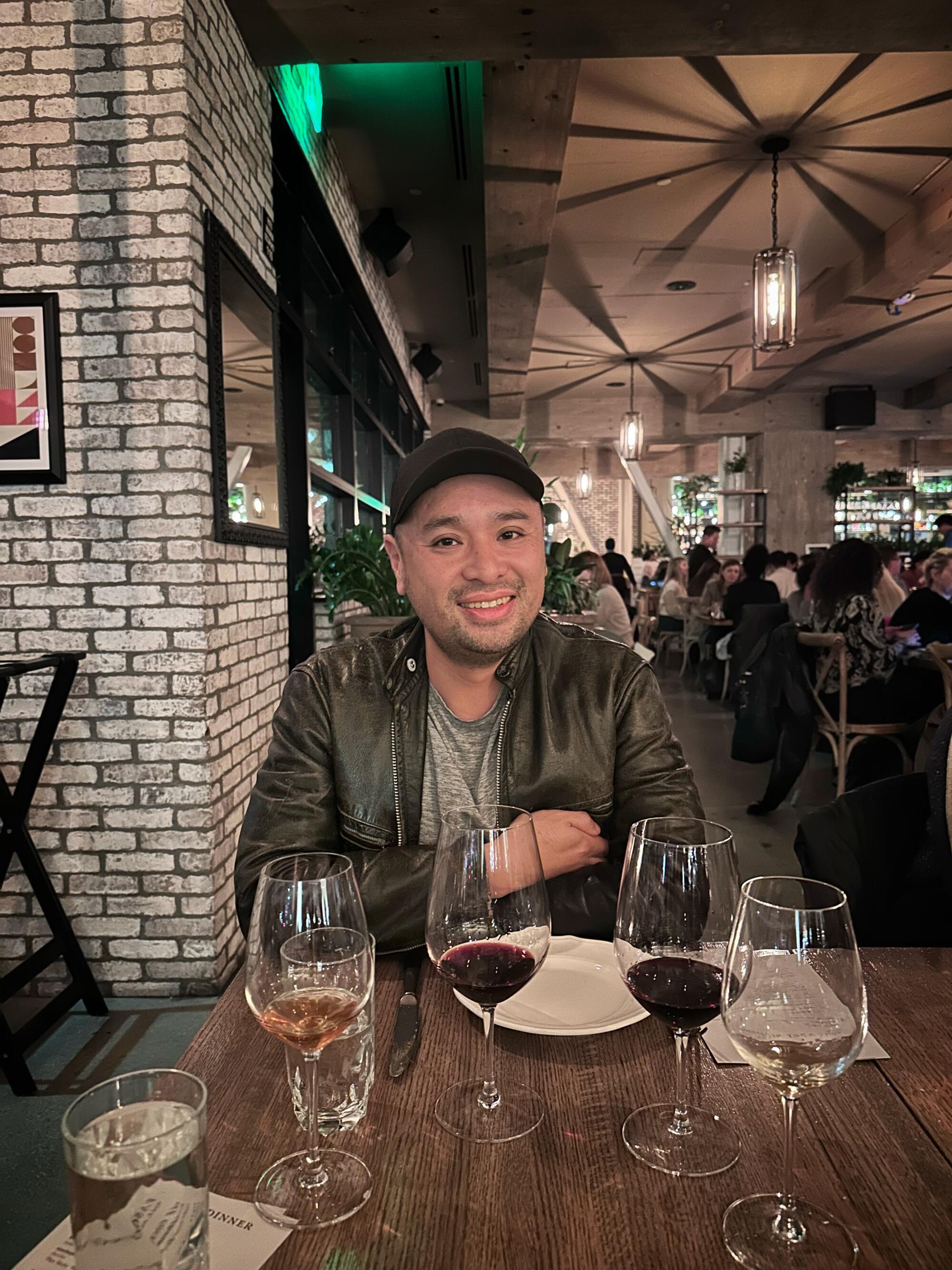
Shawn Pham and his friend and then-partner Nicole Rucker (currently of Fat & Flour) opened Fiona on Fairfax Avenue in the winter of 2018. The all-day bakery-restaurant showcased Rucker’s famous pies and Pham’s creative menu with Vietnamese beef stew, sweet potato pancakes and dahi toast with spiced yogurt and curry leaves.
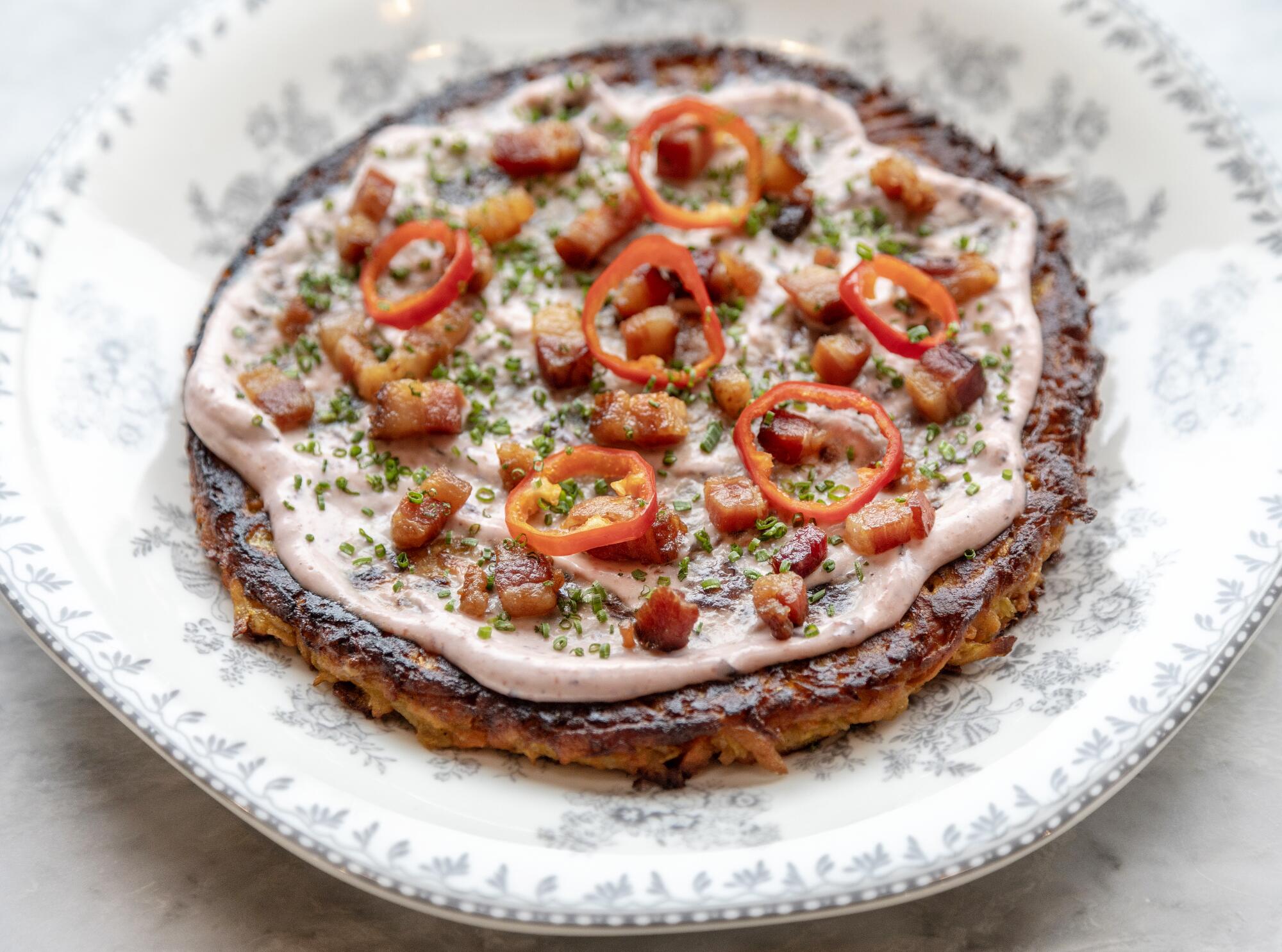
“Fiona strikes me as a restaurant deliberately designed to evolve — with the seasons, with the friendship and creativity of its principal chefs and with the city itself,” Times restaurant critic Bill Addison said in his 2019 review. That evolution was cut short when it closed just nine months after its debut — due to lack of consistent business, Pham and Rucker said.
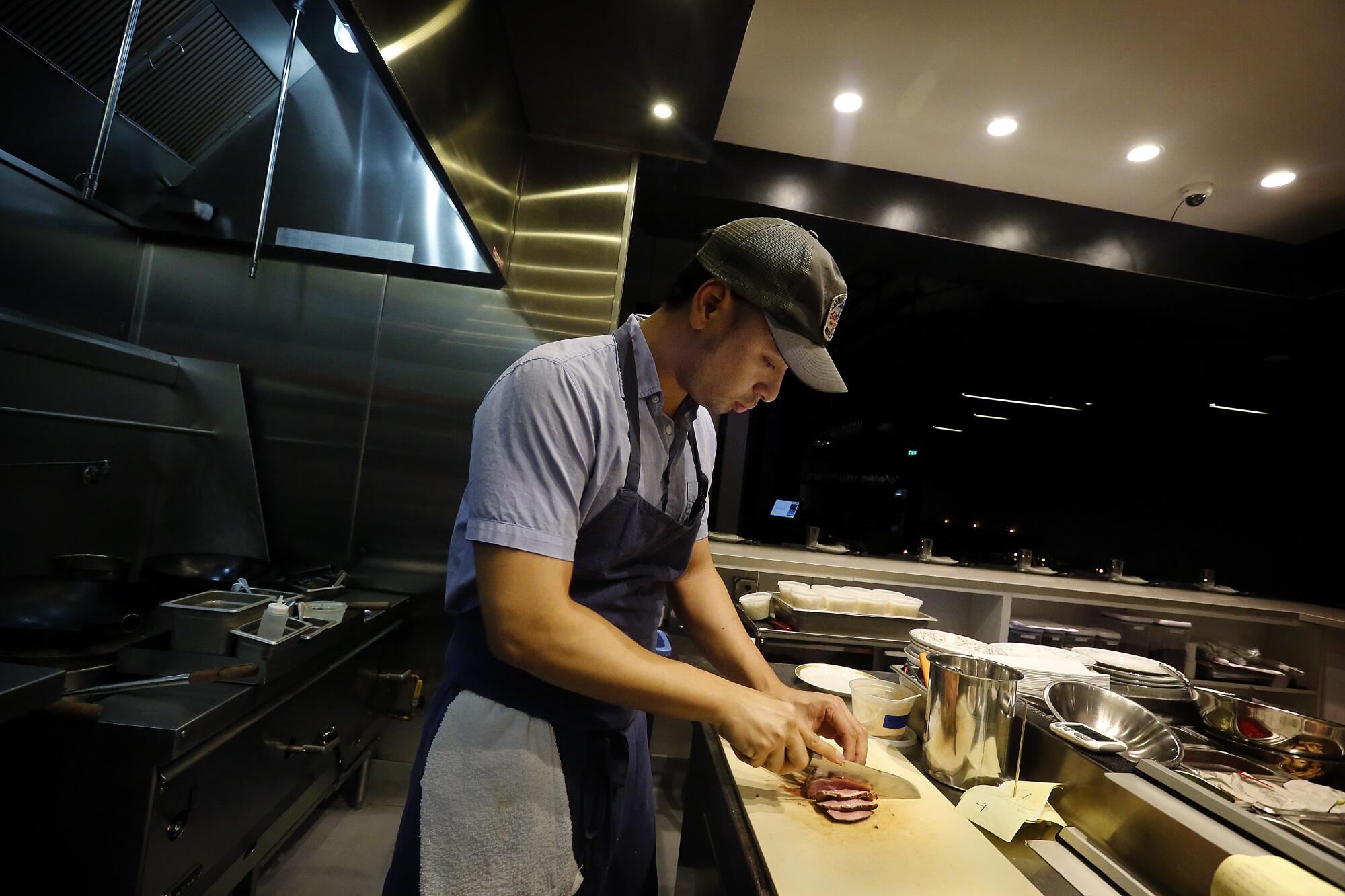
Pham had previously made a name for himself when he opened Simbal in Little Tokyo with the backing of investments from family and after years of cooking at restaurants such as David Myers’ erstwhile Sona in West Hollywood. But despite a positive review from Jonathan Gold and others, Pham shuttered Simbal in 2017 after two years in business.
For the last three years Pham has been a private chef.
“It’s a better life,” he says, “better work-life balance, better pay, better pretty much everything.”
Does he miss leading a restaurant kitchen?
“What I don’t miss is with a restaurant, there are lots of ups and downs that are completely out of your control,” Pham says. “I personally couldn’t take it, and I prefer not to go through it if I don’t have to. Staffing issues and struggles will never, ever end. I think it’s only going to get harder to operate restaurants. Customer demands and expectations, the cost of labor, food costs, all of it keeps going up … and the competition is higher than ever.”
The difficulties, he says, are affecting the entire scene.
“People are playing it safe. Why increase the risk of not making it by doing something different or pushing the boundaries when it’s hard enough as it is? What it means for diners is that it’s a little more monotonous, fewer choices, less new things. There’s nothing wrong with them, but how many pizza places can you have?”
Pham says his much of his idealistic thinking is “out the window.”
“If I opened a restaurant, I would just give people what they want. I would do Italian food. It’s the best food for a restaurant, customers accept it, they don’t question it, they’re happy to pay for it, no qualms about it. It’s not the same for Asian food. I don’t want to explain things to people, why it costs so much, I don’t want to hear ‘I don’t get this.’ Italian food doesn’t have any of that.”
- Betty Hallock
Kim Prince
Former chef-owner Hotville Chicken in Baldwin Hills Crenshaw Plaza, current partner Dulanville food truck
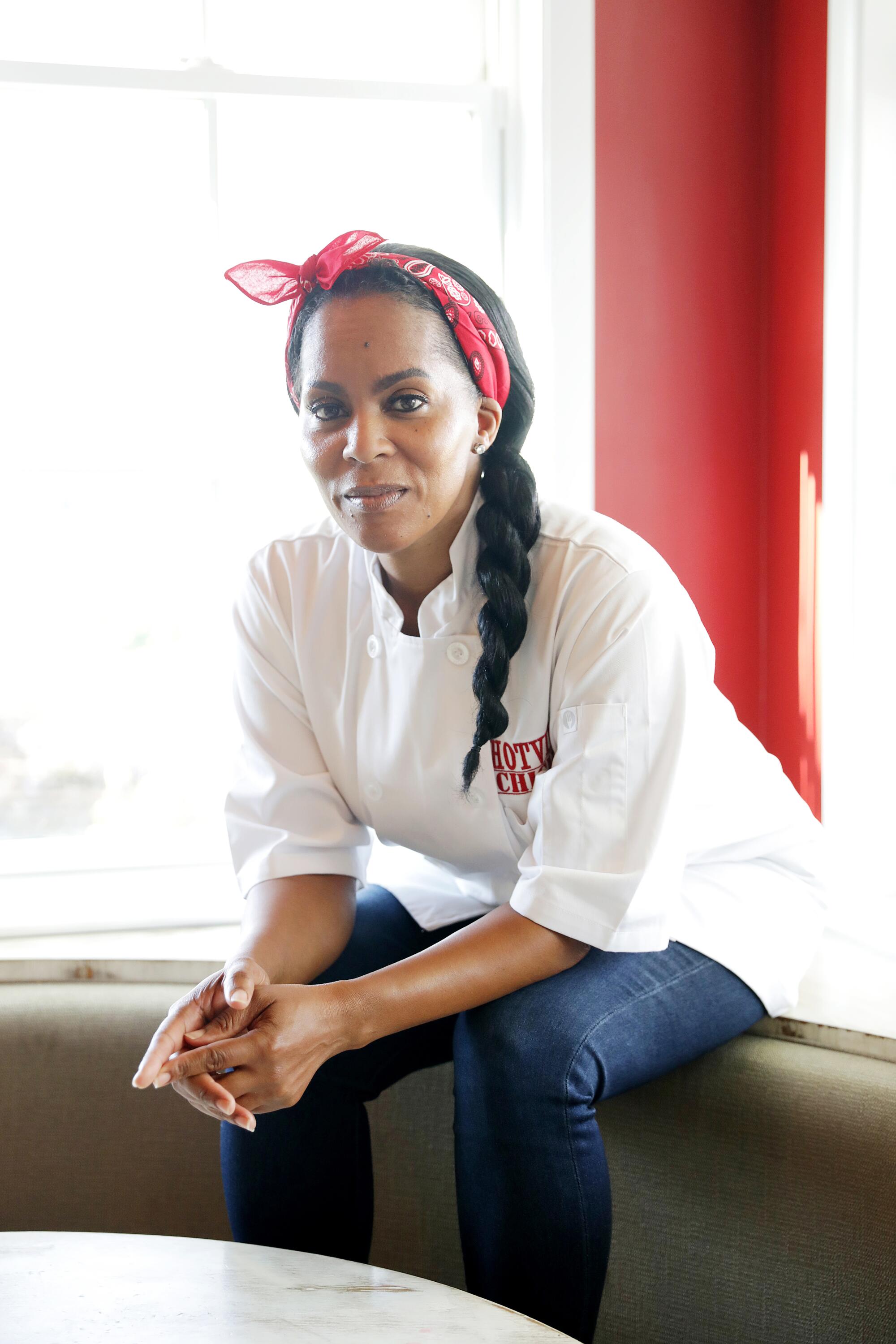
Los Angeles was driving a global obsession with Nashville-style hot chicken when Kim Prince’s Hotville Chicken arrived on the scene as a pop-up in 2017 and then a bricks-and-mortar restaurant in December 2019. In Chinatown, throngs of people lined up daily starting in 2015 for battered crimson tenders from Howlin’ Ray’s. Dave’s Hot Chicken, launched as an after-dark pop-up in an East Hollywood parking lot in 2017, quickly expanded across California, Arizona, Colorado, Florida and beyond.
A Hotville Chicken restaurant was poised for success. Not only is Prince’s hometown of Nashville the birthplace of hot chicken, but Prince belongs to the family that invented the recipe in the 1930s and launched the famed Prince’s Hot Chicken Shack in 1945 — it has since expanded throughout Tennessee and as far as Greenville, N.C.
The unfortunate opening date of Hotville Chicken just four months before the COVID pandemic meant that it was an uphill battle from the start.
The 2,800-square-foot turnkey location in Baldwin Hills Crenshaw Plaza proved too large for their output, and in 2021, the shopping mall was sold to a developer with the intent to revitalize it with a combination of housing, retail and office buildings. In December 2022, Prince made the difficult decision to close the restaurant.
“You have to evolve,” Prince says. “Our industry is in a cycle of evolution and you have to be able to keep up with that in order to remain and thrive. I’m looking forward to what the Baldwin-Hills Crenshaw Plaza has to offer. I’m not going to cry about losing four walls because housing is going up and that’s something that the community needs. But those people are going to have to eat. So I challenge all of the developers out there: If you have tenants who have to get displaced, make a game plan for them to come back so the community can continue to have great food options.”
An existing partnership with friend and seasoned restaurateur Greg Dulan of Dulan’s on Crenshaw allowed Prince to quickly pivot from her restaurant’s closure and focus attention on the pair’s Dulanville food truck.
“It’s been helpful to have the partnership and to lean on an established bricks-and-mortar to get the work done,” Prince says. “Our food truck sustains itself and thankfully we’ve been able to roll about the city and land those private engagements that keep our schedule tied down. We’re not volleying for curb space like typical food trucks have to do. We’ve been fortunate enough to keep our schedule busy with private clients and brands that have been booking us for festivals and other events.”
In the year and a half since closing Hotville Chicken, Prince has dabbled in private cheffing, fried chicken demonstrations, culinary mentorships, meal subscription services and brand collaborations and is even writing a book on the legacy of Nashville hot chicken.
“Now that I’m not hog-tied to four walls on a full-time basis,” she says, “I have time to actually go into the lab, or my kitchen, and play around with other dishes.”
But Prince still has a dream of opening an L.A. restaurant dedicated to her family’s hot chicken recipe. She says that running the food truck while juggling other opportunities has given her insight into how to run two businesses, along with the lessons gleaned during the three years Hotville operated in the Baldwin Hills Crenshaw Plaza.
“I’m taking every lesson, wins and losses, and learning from them. The only God-given vision I’ve ever had was Nashville hot chicken and so I’m going to remain true to that. To get four walls open again is something I really look forward to. It’s just a matter of where and when,” she says.
“There’s no limit,” Prince continues. “I’m a hopeful thinker. I have so much faith. As long as the chickens are hatching, I’m gonna fry them and I’m gonna make Nashville hot chicken.”
- Danielle Dorsey
Carlos Salgado, Taco Maria in Costa Mesa

When the lease was up at Taco Maria in Costa Mesa in July 2023, it seemed like a good time for owners Carlos and Emilie Salgado to take a pause. Since opening in 2013, Taco Maria had spearheaded the Alta California cuisine movement, was named The Times’ 2018 Restaurant of the Year, earned a Michelin star and a James Beard Award nomination for Carlos as Best Chef: California. Ten years later, it was clear they had outgrown the 28-seat restaurant. But they weren’t interested, the chef says, in “just quickly relocating to new real estate.”
“In order for our work moving forward to match the quality, scale and innovation that Taco Maria represented,” he says, “it was going to require more thoughtfulness.”
He and Emilie, his wife and business partner, are now taking their time to find a proper new home for Taco Maria. Additionally, the break has given the couple more family time.
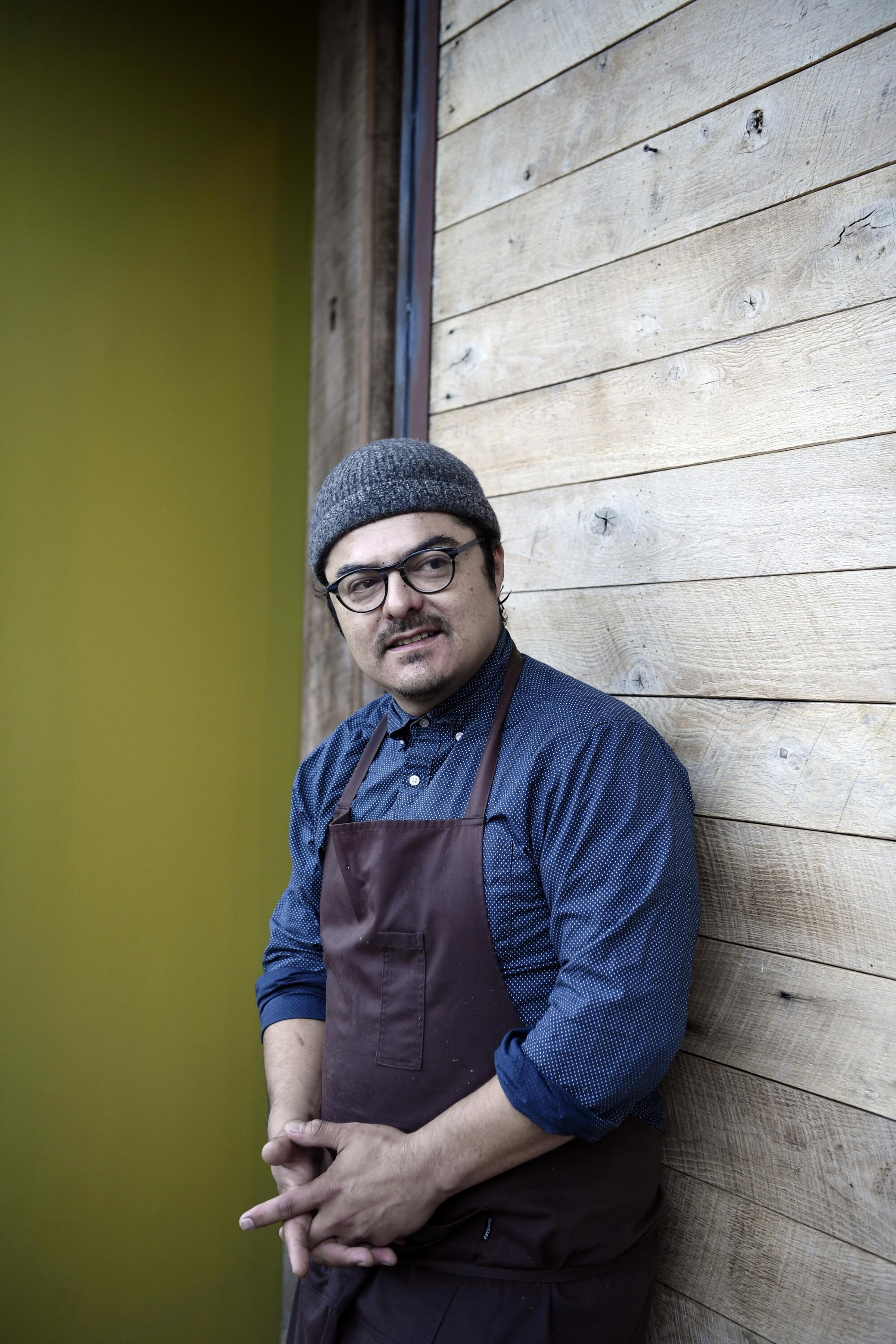
“Spending time with my young son and my younger daughter has been the most edifying and transformative experience. I owe it to them and to myself to be very careful in choosing how I return to daily service in a restaurant,” says the chef. ”I will never get this time back and the relationship I have with my son and daughter I would not have if Taco Maria had continued with the intensity that we maintained for all those years.”
Today, he mostly cooks for his kids and spends time with them going on outdoor adventures.
“I am learning with them and that has been incredibly fulfilling,” said Salgado.
Additionally, Salgado is working on and shopping a book, a project he began before the pandemic. He is also still producing Taco Maria’s line of Salsa Negra sauces, partly because Salgado himself can’t live without the stuff.
“I realized I could have as much as I wanted at home if I made it available for sale online,” Salgado says.
While Salgado is enjoying his break, he says Taco Maria will be a restaurant again before too long.
“I am so moved that Taco Maria had the impact that it did and that it inspired a lot of people,” Salgado says. “The work that I do next under the name Taco Maria has to be better, it has to be carefully considered, it has to be healthy, and we are going to take the appropriate time to envision what that means and imagine a beautiful continuation of the work that we were doing.”
- Sarah Mosqueda
More to Read
Eat your way across L.A.
Get our weekly Tasting Notes newsletter for reviews, news and more.
You may occasionally receive promotional content from the Los Angeles Times.
